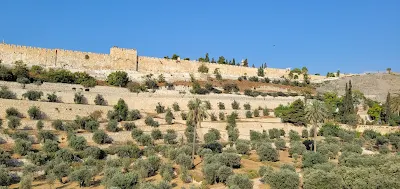 |
| 2025 thanks Beth Herrington Kruprzak for the beautiful sunrise photo |
There are some kinds of pain that don’t leave bruises but
sit heavy on the heart.
Maybe it was something they said. A careless word, a
sharp tone. Maybe it was what they didn’t say—the silence where comfort
should’ve been. Or maybe it was an action that felt like betrayal, and now
you’re left wondering if they even realize how deeply they hurt you.
And the hardest part? Sometimes they don’t.
Sometimes the person who hurt us goes on like nothing happened.
No apology. No acknowledgement. Just... silence.
So what do we do when our hearts are aching and the
people who hurt us don’t even see it?
1. You Don’t Have to Pretend It Doesn’t Hurt
You don’t have to shove your feelings down or “just get
over it.” God never asked that of you. In fact, He invites you to bring your
full, aching heart to Him.
“The Lord is near to the brokenhearted and saves the
crushed in spirit.” — Psalm 34:18 (ESV)
He sees you. He knows the weight of the tears you cry
behind closed doors. He never minimizes your pain. He steps into it with you.
2. Let Yourself Feel, But Don’t Let the Pain Take Over
Yes, feel the sadness. Acknowledge the disappointment.
Name the hurt.
But then—slowly—start to hand it over to the One who can actually carry it.
“Trust in him at all times, O people; pour out your heart
before him; God is a refuge for us.” — Psalm 62:8 (ESV)
There’s such beauty in pouring your heart out to God with
honesty.
You don’t have to have polished prayers. Just real ones.
3. What If They Don’t See It? What If They Never Say
“Sorry”?
Oh, friend... this part is so hard. But Jesus knows this
place.
On the cross, He looked at the people who were actively hurting Him and said:
“Father, forgive them, for they know not what they do.” —
Luke 23:34 (ESV)
Sometimes people genuinely don’t know the depth of their
words or actions.
And sometimes... they just don’t care to.
But your healing doesn’t have to depend on their apology.
Your freedom starts when you release the need for it.
4. Forgiveness Isn’t Saying It Was Okay. It’s Saying God
Can Handle It Now.
Forgiveness is not the same as forgetting or pretending
it didn’t hurt.
Forgiveness is choosing to let go of the bitterness and giving it to God
instead.
“Let all bitterness and wrath and anger... be put away
from you... forgiving one another, as God in Christ forgave you.” — Ephesians
4:31–32 (ESV)
Forgiveness is less about what they deserve, and more
about what you need.
You need peace. You need healing. You need to breathe again.
5. You Can’t Give Them Real Estate in Your Mind
At some point in the healing process, you have to make a
choice—not just to forgive, but to stop letting their words or actions live
rent-free in your head.
You can’t give people who hurt you the power to sabotage
your peace.
You can’t let them take up space in your thoughts, distract you from the good
God is doing, or derail your focus on the future He has for you.
God wants to renew your mind, not leave it tangled in
someone else’s mess.
“Do not be conformed to this world, but be transformed by
the renewal of your mind...” — Romans 12:2 (ESV)
This doesn’t mean you’ll never remember what happened—but
it does mean you stop giving that hurt the power to define you or your days.
You get to move forward in freedom.
6. You Are Deeply, Unshakably Loved
Let this sink in:
Your worth doesn’t come from how others treat you.
It comes from the God who knit you together, who calls you His daughter, who
never leaves your side.
“Nothing will be able to separate us from the love of God
in Christ Jesus our Lord.” — Romans 8:39 (ESV)
He loves you on your strongest days and on your
barely-holding-it-together days.
7. Peace Is Possible—Even If the Pain Still Flickers
This peace doesn’t mean you won’t remember.
It just means you’re learning to breathe again, love again, hope again.
Not because of them—but because of Him.
“Do not be anxious about anything... but in everything by
prayer... let your requests be made known to God. And the peace of God... will
guard your hearts and your minds in Christ Jesus.” — Philippians 4:6–7 (ESV)
You don’t have to carry the weight of this forever.
One step at a time, God is healing you.
One breath at a time, He is filling you with peace that makes no sense except
for the fact that He’s in it.
You’re not alone, sweet friend.
If today hurts, let yourself sit with God in the hurt.
And then—when you’re ready—let Him begin to heal it.
You were never meant to carry this alone.











